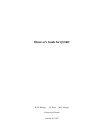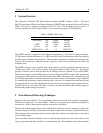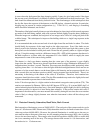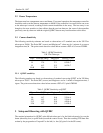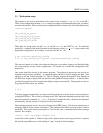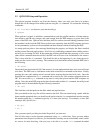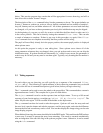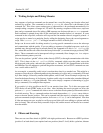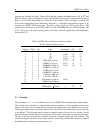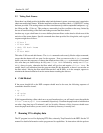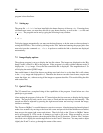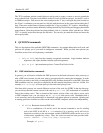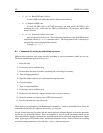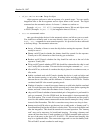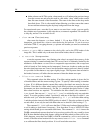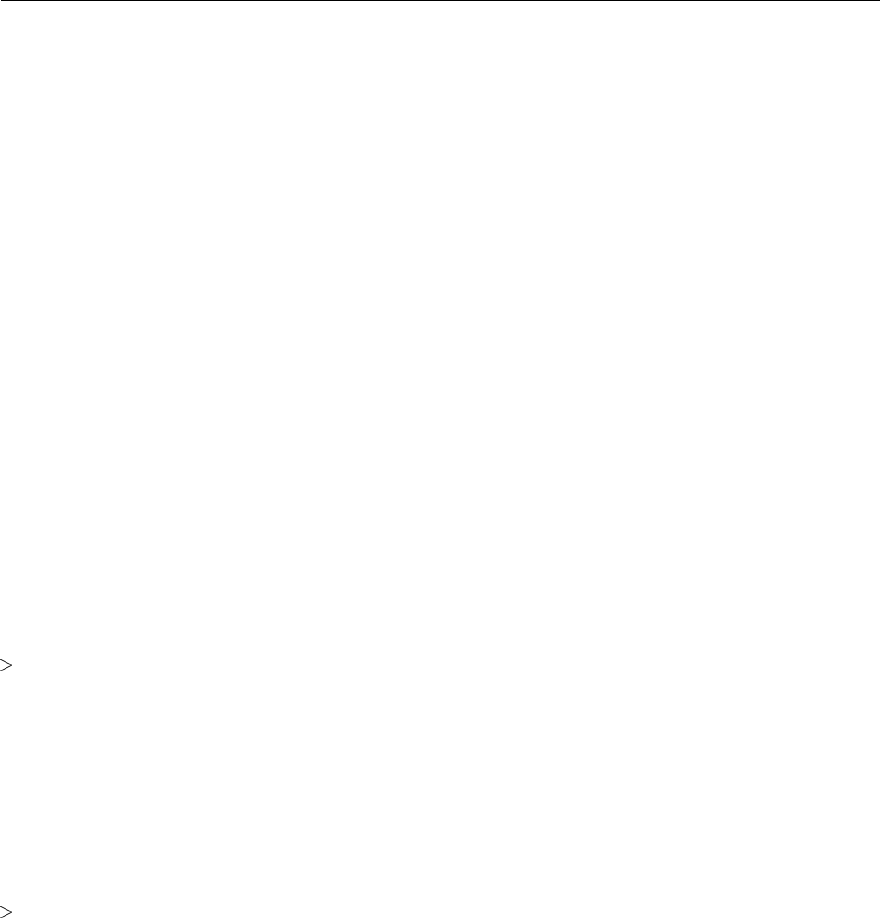
October 30, 1997
5
3.2 QCDCOM Setup and Operation
The qcdcom program should be run from the directory where you want your data to be written,
though this can be changed from within qcdcom using the cd command. So execute the following
commands:
% cd /scr/data (or wherever your data should go)
% qcdcom
When qcdcom is started, it initializes communications with the parallel interface, allocate memory
into which to read IR array images, and read enough from the DSP memory to get an idea of the
status of the DSP code. Qcdcom also initializes itself for readout size and binning parameters from
the numbers it reads from the DSP. Since qcdcom runs separately from the DSP computer and saves
its own parameters, qcdcom can be terminated and then restarted without disturbing the DSP.
At startup qcdcom prints a short message identifying the program, and display the filters installed
and the current filter and pupil position. It will also try establishing communication with the camera,
and will give a warning if it fails. If the camera has not been initialized after powerup, or if for some
other reason communications have failed, the DSP code will have to be downloaded to the camera.
This is done with the df command. You should do this at the beginning of your observing run to
make sure the correct code is running. The command to download the current standard DSP code is
the following:
df quirc
Occasionally the download will fail if the camera is in some undetermined state, and a reset will need
to be done. The DSP reset is a red button on the white controller box mounted on the dewar. Usually
pressing this once and waiting several seconds before retrying the download will work. Once the
download has completed, the sync command can be used to see if the camera communications are
OK. You can use the sync command at any time to verify that qcdcom and the DSP computer are
talking. Once the main DSP program has been downloaded with the df command, the utility board
program must be downloaded using the following command:
du util
This loads the code that performs the filter wheel and pupil motions.
Next you should set the way files will be named on the disk. Files are named using a prefix with the
frame number appended, thus you should set the prefix using the fp command and reset the running
file number using the fn command (typically to 1 when you start up). For example, to have files
named qrc.001, qrc.002, etc.:
> fp qrc.
>fn1
Note you must specify a trailing dot in the file prefix if you want one.
You will also want to set the exposure parameters using auto at this time. Since you may inherit
parameters from the previous observer, you should make sure they are set to the default values, which
are correct for most observing. One easy way to do this is to use the init command described



